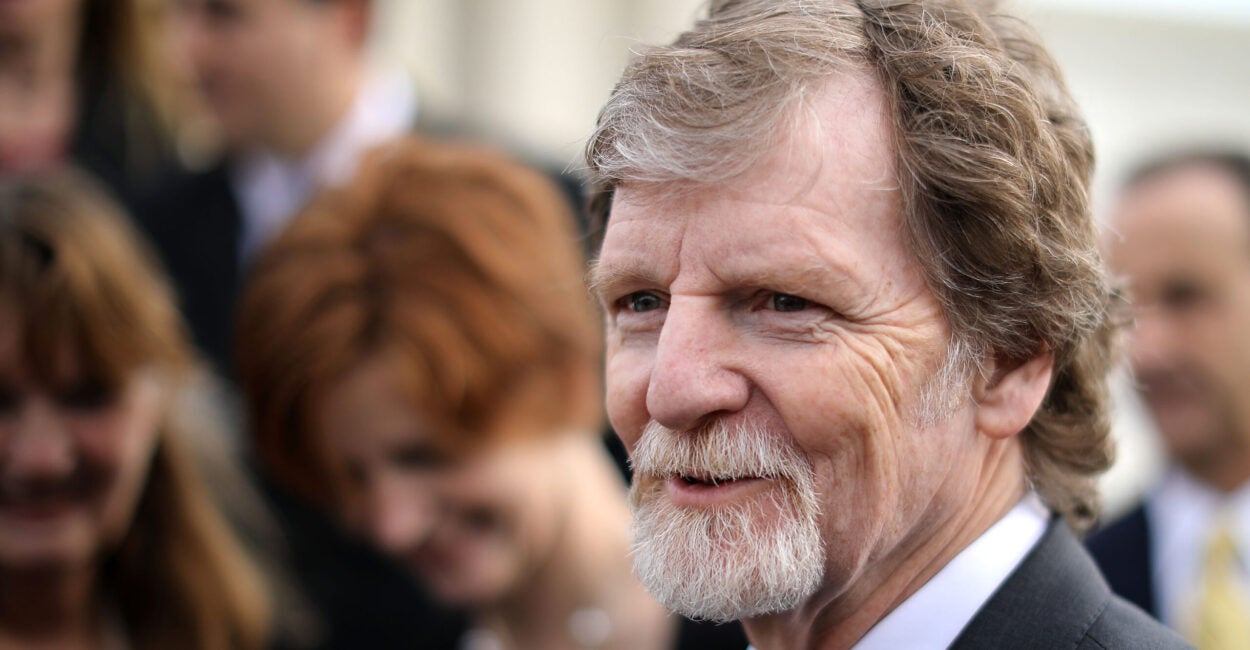


It’s no secret that religion in America has seen better days. The percentage of Americans who say religion is “very important” in their lives is at its lowest point in decades. The percentage who express confidence in the church or organized religion is half what it was in the 1980s. And more than three-quarters say that religion in losing its influence in American life.
Activists are trying to degrade the right to exercise religion from the “preferred position” the Supreme Court says it holds to nothing more than an ordinary policy option. Still, recent court decisions suggest that we shouldn’t count religious freedom out.
America’s founders said that religious exercise took precedence over “the demands of civil society.”
In his annual address to Congress in January 1941, President Franklin Roosevelt called it one of the “four essential human freedoms” on which the world should be built. The U.S. signed the 1948 Universal Declaration of Human Rights, which identifies religious freedom as one of the “equal and inalienable rights of all members of the human family.” We also ratified the 1966 International Covenant on Civil and Political Rights, committing to promote respect and universal recognition for religious freedom.
Reality, however, is increasingly out of step with the rhetoric. For years, the Obama administration tried to force the Little Sisters of the Poor, an order of Catholic nuns, to provide insurance coverage for birth control. It took three trips to the Supreme Court to fight back.
The Colorado Human Rights Commission tried to force Jack Phillips to design and create cakes promoting messages that violate his religious beliefs. He had to go to the Supreme Court twice.
And the Montgomery County, Maryland, school district tried to subject children of religious parents to material affirming the LGBTQ agenda without the parents’ knowledge or consent. They too had to go to the Supreme Court to vindicate their right to exercise their religious beliefs and prevent indoctrination of their children.
Now, though, a pair of decisions by the U.S. Court of Appeals for the Ninth Circuit suggests that maybe, just maybe, religious freedom is alive after all.
The Ninth Circuit covers the western third of the United States and is dominated by California-based judges, making it arguably the most liberal of the regional circuits. The appeals court initially considers cases in three-judge panels, randomly drawn from the judges throughout the circuit.
In the case in question, Jessica Bates, a single mother of five children, sought to adopt a child from Oregon’s foster care system. Under state regulations, all applicants must “accept and support the…gender identity [and] gender expression” of children in their care. As Jessica learned, that “support” meant using a child’s preferred pronouns, affirming his or her gender identity, taking the child to “LGBTQ-affirming events like gay-pride parades,” and avoiding activities, “including religious activities,” that are “unsupportive of people with diverse LGBTQ+ identities.”
Oregon denied Jessica’s application when she said her Christian faith would not allow active promotion of a child’s professed gender identity. And in 2023, the district court denied Jessica’s request for an injunction while she challenged this policy.
On July 24, though, a Ninth Circuit panel reversed the district court. Judge Daniela Bress, a Trump appointee, wrote the opinion and was joined by Judge Michael Daly Hawkins, appointed by President Bill Clinton in 1994. They concluded that the Oregon regulations both compelled and restricted Jessica’s speech based on its content, and that the regulations were not neutral toward religion.
The court rejected Oregon’s argument that that the “exercise of religion” means only the freedom to hold personal religious beliefs. “That constitutional right,” wrote Bress, “encompasses religious speech and practice as a way of life and not merely as private thought.”
Less than two weeks later, in McMahon v. World Vision, the Ninth Circuit—this time by a unanimous panel of Democrat appointees—affirmed an important protection for churches and religious organizations that allows them to decide how to pursue their mission.
In 2012 and in 2020, the Supreme Court held that the First Amendment creates a “ministerial exception” that prevents application of employment discrimination laws to churches and religious organizations.
World Vision is a well-known religious organization that describes itself as a “Christian ministry dedicated to sharing the gospel of Jesus Christ” through “humanitarian outreach to children and families around the world who are poor and underserved.” Employees must affirm and comply with certain standards of conduct, including the prohibition of sexual activity outside “the Biblical covenant marriage between a man and a woman.”
In the case, Aubry McMahon, a female, applied to be a World Vision customer service representative. The same day she received an offer, McMahon sent an email with this “quick question”: “My wife and I are expecting our first baby in March and I wanted to see if I would qualify for any time off since I’ll be a new employee?” Subsequently, World Vision rescinded her job offer—leading McMahon to sue.
The district court refused to recognize the ministerial exception, but in its recent decision, the Ninth Circuit reversed, upholding World Vision’s right to hire and fire according to its religious beliefs.
Even though the position of customer service representative might not appear to be as “religious” as a minister or religious school teacher, the court said, the question was whether an employee performs “vital religious duties” in light of a religious organization’s core mission. The Ninth Circuit held that, as defined by World Vision, this position fit that description.
Fundamental rights, even inalienable ones such as the exercise of religion, do not protect themselves. Eternal vigilance, President Andrew Jackson said, is the price of liberty. We see that today as people like the Little Sisters, Jack Phillips, and Jessica Bates courageously stand up to assert those rights, as dedicated lawyers represent them in well-crafted cases, and as judges impartially interpret and apply the law.
